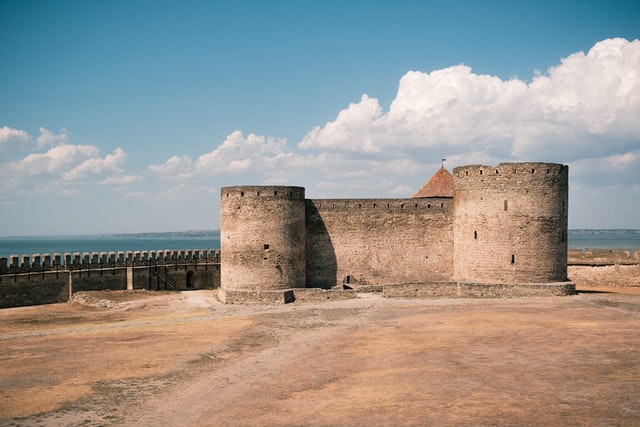by Ryan Cooper, Counseling Pastor
In the war in Afghanistan in the 2000’s, the United States established American Combat Outpost (COP) Keating in a rural area of Northeast Afghanistan with the purpose to stop the transport of arms into Afghanistan from Pakistan. COP Keating was situated at the base of three mountains, making landings, support, and other maneuvers very difficult. In addition, the roads to the outpost were frequently targets of ambushes and often weren’t passable by military vehicles at all.
Every army base is intended to be a fortress, refuge, and place of strength. However, in the eyes of many experts, COP Keating was quite the opposite.
On October 3rd, 2009, US troops at COP Keating were ambushed by Taliban fighters. Starting at 6:00am, insurgents successfully killed 8 Americans, injured 27, and very nearly completely overran the garrison. Due to the actions of our American heroes, COP Keating was defended and an estimated 150 jihadists were killed that day. Many soldiers received military decorations including two who were awarded the Medal of Honor for their bravery in this battle.
Shortly after this incident, the US military abandoned the outpost, destroying as much of it as they could in the aftermath.
“I love you, O Lord, my strength. The Lord is my rock and my fortress and my deliverer, my God, my rock, in whom I take refuge, my shield, and the horn of my salvation, my stronghold.” Psalm 18:1-2
How does this military language strike you? Are you emboldened by it? Are you at peace because of it? Do you feel safe knowing that the Lord is our strength, rock, fortress, deliverer, refuge, shield, symbol of salvation, and stronghold?
Recently, the Lord is teaching me something new and it is centered around this soldierly poetry. In the past, when I have considered the idea of a stronghold, refuge, and fortress, I have often thought of it as a place to run and hide in the midst of the attacks of the enemies.
A place to run to…to hide…when I’m afraid…a place to be scared.
When I’m afraid, I’m suspicious. I’m anxious. I’m on edge. I’m irritable.
I feel unsupported.
Alone.
Much like COP Keating was to the soldiers who served there.
So, to think of the Lord like a fortress hasn’t really worked for me.
And then I realized in the story from the war in Afghanistan, the real fortress wasn’t COP Keating.
IT WAS THE MOUNTAINS!
The US Army surrendered the high ground, the place of advantage, leading their outpost to be subject to frequent probing attacks by the terrorists before the final act on that fateful day.
The Taliban were able to attack from a place of refuge, a place of rock, a fortress.
As I combine this passage and think about the idea of a stronghold, I realized I had it wrong all along.
A stronghold is a place of strategic advantage. An army is able to launch operations from a position of strength. The Lord is my stronghold definitely means I can and will run to Him in times of trouble. However, it is much more a station to refortify, to be outfitted, to plan, and to strike.
From the presence of God, I can clearly see the enemy’s build-up to their attack. From the fortress of God, I can learn how to execute the maneuvers I will need to be victorious. From my Rock, I can stand my ground, keep ground, and gain ground to expand the reaches of the stronghold of God.
The Lord is my Strength. Rock. Fortress. Deliverer. Refuge. Shield. Symbol of Salvation.
The Lord is my Stronghold.
Reflection Questions:
- Which description of God means the most to you in this passage from Psalm 13 and why?
- Why do you think we struggle with military language in the Bible to describe God?
- Think about, and describe a time, when God was your stronghold.

